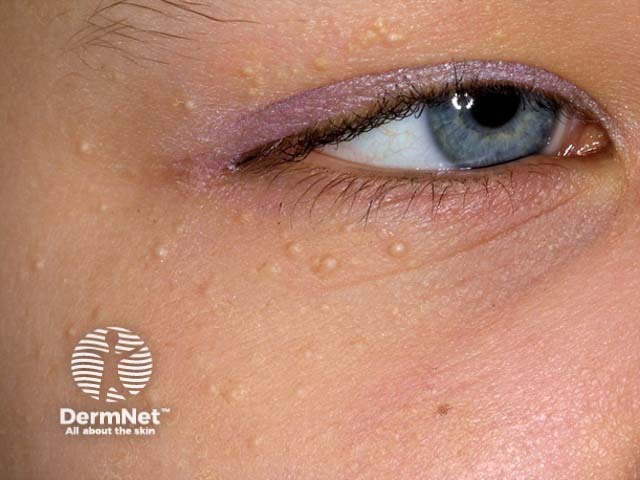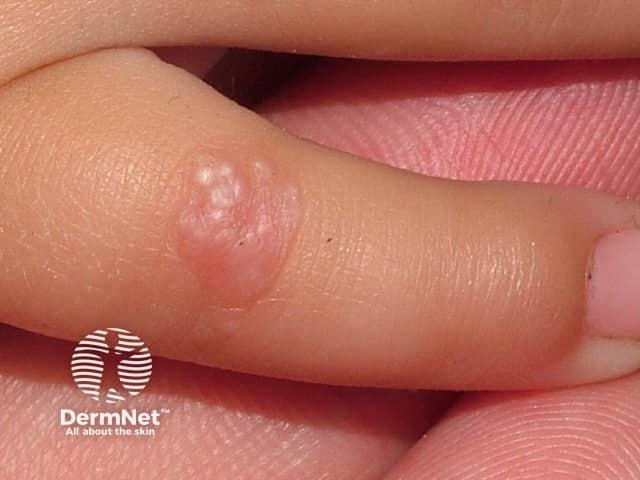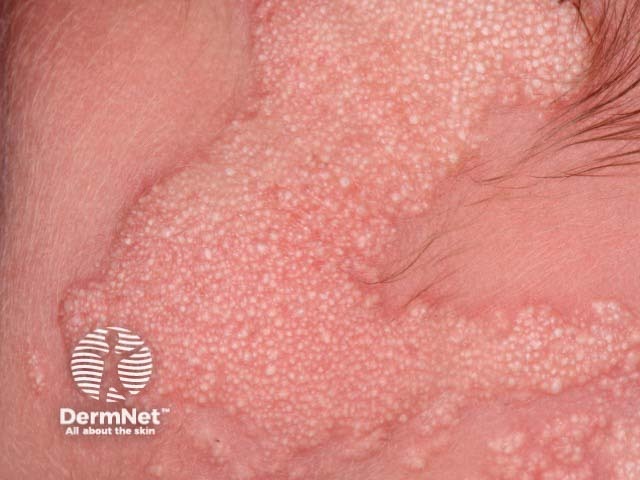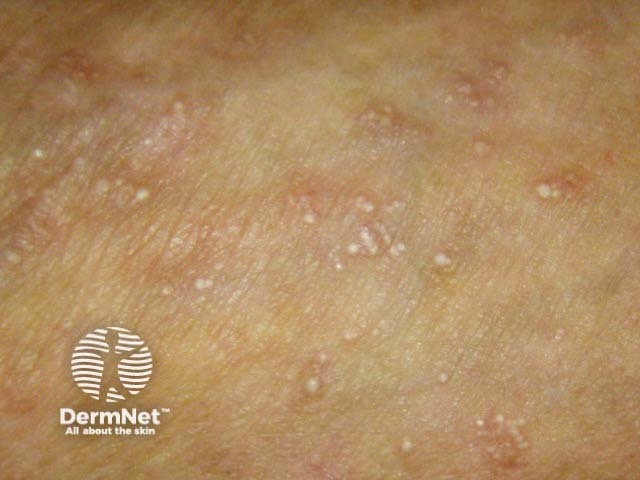Main menu
Common skin conditions

NEWS
Join DermNet PRO
Read more
Quick links
Author: Dr Monisha Gupta, Dermatologist, Sydney, Australia; Amanda Oakley FRACP, Dermatologist, Hamilton, New Zealand, 2009.
" data-index="1" alt="Go to Introduction
" onclick="event.preventDefault();document.getElementsByTagName('h2')[(1 - 1)].scrollIntoView({behavior: 'smooth',block: 'start'});">Introduction
" data-index="2" alt="Go to Clinical features
" onclick="event.preventDefault();document.getElementsByTagName('h2')[(2 - 1)].scrollIntoView({behavior: 'smooth',block: 'start'});">Clinical features
" data-index="3" alt="Go to Diagnosis
" onclick="event.preventDefault();document.getElementsByTagName('h2')[(3 - 1)].scrollIntoView({behavior: 'smooth',block: 'start'});">Diagnosis
Treatment
A milium is a small cyst containing keratin (the skin protein); they are usually multiple and are then known as milia. These harmless cysts present as tiny pearly-white bumps just under the surface of the skin.
Milia are common in all ages and both sexes. They most often arise on the face and are particularly prominent on the eyelids and cheeks, but they may occur elsewhere.
There are various kinds of milia.

Neonatal centrofacial milia

Periocular milia

Milia associated with epidermolysis bullosa

Milia-en-plaque

Periocular milia

Milia after pemphigoid blisters
Milia have a characteristic appearance. However, on occasion, a skin biopsy may be performed. This shows a small epidermoid cyst coming from a vellus hair follicle.
Milia should be distinguished from other types of cyst, comedones, xanthelasma and syringomas. Colloid milia are golden coloured bumps on cheeks and temples associated with excessive exposure to sunlight.
They should also be distinguished from milia-like cysts noted on dermoscopy in seborrhoeic keratoses, papillomatous moles and some basal cell carcinomas.
Milia do not need to be treated unless they are a cause for concern for the patient. They often clear up by themselves within a few months. Where possible, further trauma should be minimised to reduce the development of new lesions.